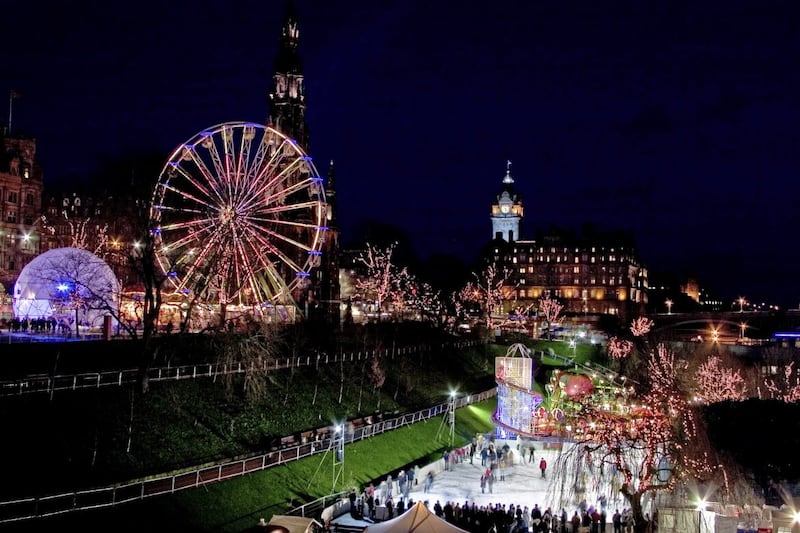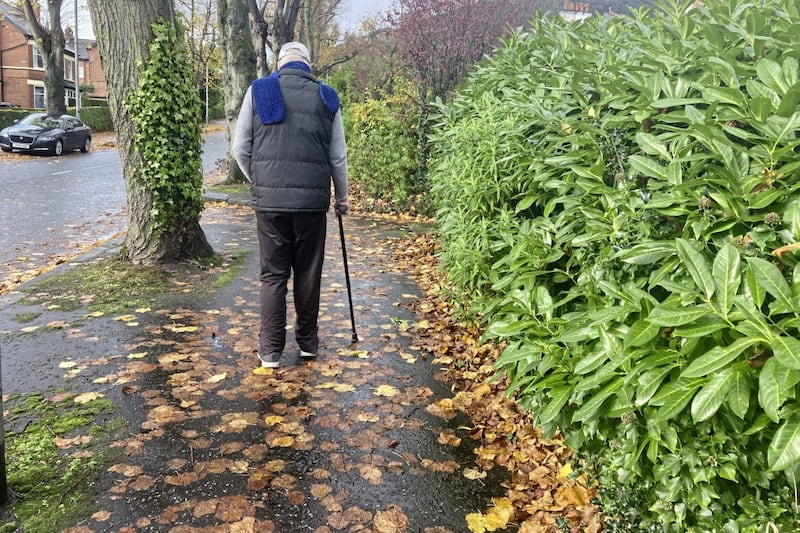DENIS Tuohy has the knack of adjusting his presentation according to his audience and his story. As a broadcaster it could be reporting on a disaster, a deeply sad occasion or a light-hearted celebration, always his own well considered words rather than a script – except when on stage or on television acting out a role.
And that's what makes his anthology Streets and Secret Places: Reflections Of A News Reporter such a joy to read. It's a companion, with Denis chatting his way through 60 years of experience culminating in his contributions to BBC Radio Ulster's Thought For The Day.
Each two-and-a-half minute broadcast has a beginning, a middle and an end – a skill in itself – each a little vignette, interesting and leaving you contemplating exactly what 'TFTD', as it's known, intends.
Fellow broadcaster John Humphrys calls him a "hack of the old school" – "In my book, there is no higher praise. He writes like a dream" – while Sir Trevor McDonald writes in his foreword "It's a book for our time and about us."
Tuohy moved from BBC Belfast to London in 1964 to work for the new BBC 2 channel. After a hesitant start due to a power failure, the station went on air the following day, opening with a shot of a burning candle with Tuohy blowing it out, the studio lights going up – and he was off.
His programme Late Night Line Up developed into a forum for lively debate, although, as he writes in the book, one critic wasn't keen, demolishing the presenters until he came to the young Tuohy "whose youth and classless brogue and lazy charm seems to fit this mistaken BBC2 image so closely that I can foresee a new adjective creeping into the shop talk of television people – 'yes, but aren't you being just a little bit BBC-Tuohy?'"
It was the start of a stellar career with the BBC, ITV, RTE and TG4, immediately recognisable by his rich voice and his straight talking.
Years later, during a phone conversation with Gerry Anderson, Gerry asked him what he was doing.
"He knew about The Troubles I've Seen, award-winning documentaries I'd produced and presented with UTV but, he asked, 'what about the Beeb?'.
"I told him Radio Ulster had asked me to do some Thought For The Day pieces and that I was considering having a go."
He says he can still hear Anderson's intake of mischievous breath.
"Have you no shame?"
"Freelances," I replied "can't afford shame".
I'm glad, because it has provided us with a book full of reminiscences all linked with his own more recent thoughts expanding on the broadcasts and giving additional background about his career.
It's a very personal book, not only because of his writing. Before Denis's son, Chris, died earlier this year, he sent his father a photograph taken in Richmond Park, looking out over a dimly lit street through the dark mysterious trees to the light of the city beyond.
Denis immediately saw it as the perfect cover for his book and his publisher agreed.
Although the book was far from ready, a mock-up of the cover was prepared for Chris to approve which he did wholeheartedly: Denis dedicates the book "in memory of my dear son" and he includes a poem, Wellspring, written by Chris in January.
In one Thought for The Day, Denis quotes a famous interviewee, who presented him with his book after a BBC interview: "To Denis from Muhammad Ali. Death is so near and time for friendly action is so limited. Peace."
Margaret Thatcher is recalled for suggesting her interview with Denis Tuohy for TV Eye was the most hostile interview of the 1979 election campaign. "I would myself have described it as combative rather than hostile," he says, but immediately writes of a less abrasive meeting in the mid-80s after which she seemed in no hurry to go.
"People are waiting to pounce as soon as I walk out of that door... while I'm in this room, I'm safe."
Denis travelled the world and we travel with him: New York, to cover the aftermath of the Martin Luther King murder, London and the story of Gareth Malone challenging traumatised school children shattered by the Grenfell Tower to form a choir, to write a song about the tragedy and perform to their families and friends. The result was remarkable.
"We're called 'the school in the shadow of Grenfell'," one said.
"We're not the shadow. We're the light."
It was young people again who caught his attention in Rostrevor parish church, telling the congregation how the Stations of the Cross can relate to our everyday lives:
"Our guides were a teenage girl and a teenage boy."
In the First Station, Jesus is condemned to death.
"We continue to condemn people unjustly today," said the guide, "because of the colour of their skin, their gender, their beliefs, because they don't confirm to our way of thinking."
Denis continues to walk with the guides and recounts their modern take on the remaining Stations: this Thought for The Day is very powerful.
A treasure trove came to him via a neighbour in Rostrevor who had found a box of paintings in her attic. They were by a nurse from Newry.
Olive Swanzy had nursed in France during the First World War and, as a form of occupational therapy, she and her colleagues devised a plan to encourage patients in the field hospital to create on paper – a poem, a sketch, a cartoon.
This history, that had lain in the box for 70 years, provided Denis with a wonderful insight into the courage, fear and sadness of terribly wounded men. This unique library of material was donated to the Ulster Museum.
Streets and Secret Places, Reflections Of A News Reporter is itself a treasure trove. This man of many parts – actor, writer, broadcaster and more – all recorded in this fascinating book.
More at Messenger.ie










